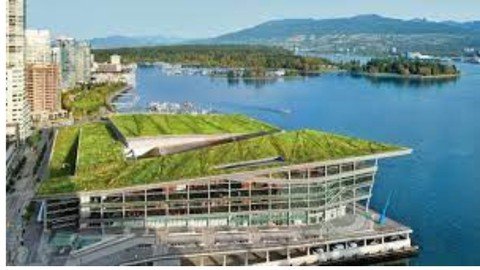
Published 4/2023
MP4 | Video: h264, 1280x720 | Audio: AAC, 44.1 KHz
Language: English | Size: 1.32 GB | Duration: 1h 10m
Designing for Environmental Resilience and a Regenerative Future
Free Download What you'll learn
The importance of sustainable design in addressing environmental challenges
Key concepts and principles of sustainable design
Sustainable Design Strategies
Examples of successful sustainable design projects
Requirements
No skill required
Description
Students in a Sustainable Future Design for Environment course might be taught a range of topics related to sustainable design and environmental resilience, including:The principles of sustainable design and how they can be applied to different contexts.Strategies for reducing energy and resource use, such as designing for energy efficiency, using renewable energy sources, and designing for water efficiency and conservationStrategies for reducing waste and promoting recycling and circular design principles.The role of policy and regulations in promoting sustainable design, and opportunities for advocacy and activism in this area.Case studies of successful sustainable design projects and best practices in various sectors.In this course, students will learn the principles and practices of sustainable design and how to apply them to create a more resilient and regenerative future. The course will cover a range of topics related to sustainable design, including strategies for reducing energy and resource use, designing for water efficiency and conservation, reducing waste, and promoting recycling and circular design principles. Students will also learn about the concept of life cycle assessment and how it can be used to evaluate the environmental impact of products and services.Other topics covered in the course include the role of policy and regulations in promoting sustainable design. Through case studies and best practices, students will gain a deeper understanding of successful sustainable design projects and opportunities for advocacy and activism in this area.By the end of the course, students will have developed a comprehensive understanding of sustainable design principles and practices, as well as the skills and knowledge necessary to design for environmental resilience in a variety of contexts. This course is ideal for students interested in pursuing careers in fields such as architecture, urban planning, product design, or sustainability advocacy.
Overview
Section 1: Introduction
Lecture 1 Course overview and objectives
Section 2: Environmental Systems
Lecture 2 Understanding the natural systems that support life on Earth
Lecture 3 History and evolution of sustainable design practices
Lecture 4 Why should we care about sustainable design?
Section 3: Sustainable Design Strategies
Lecture 5 Design for energy efficiency and renewable energy
Lecture 6 Design for water efficiency and conservation
Lecture 7 Design for waste reduction and recycling
Lecture 8 Design for sustainable materials and products
Section 4: Environmental Policy and Design principles
Lecture 9 The role of policy and regulations in promoting sustainable design
Lecture 10 Examples of successful sustainable design projects
Lecture 11 2 Case Studies and Best Practices
Lecture 12 Opportunities and challenges for implementing sustainable design
Lecture 13 Design principles for green buildings
Section 5: Conclusion
Lecture 14 Course conclusion
A sustainable design course can provide valuable knowledge and skills to anyone looking to create a more sustainable future design for environment. whether they work in the design industry or are simply interested in reducing their environmental impact.
Homepage
https://www.udemy.com/course/creating-a-sustainable-future-design-for-environment/
Buy Premium From My Links To Get Resumable Support,Max Speed & Support Me
Links are Interchangeable - Single Extraction
Comments

